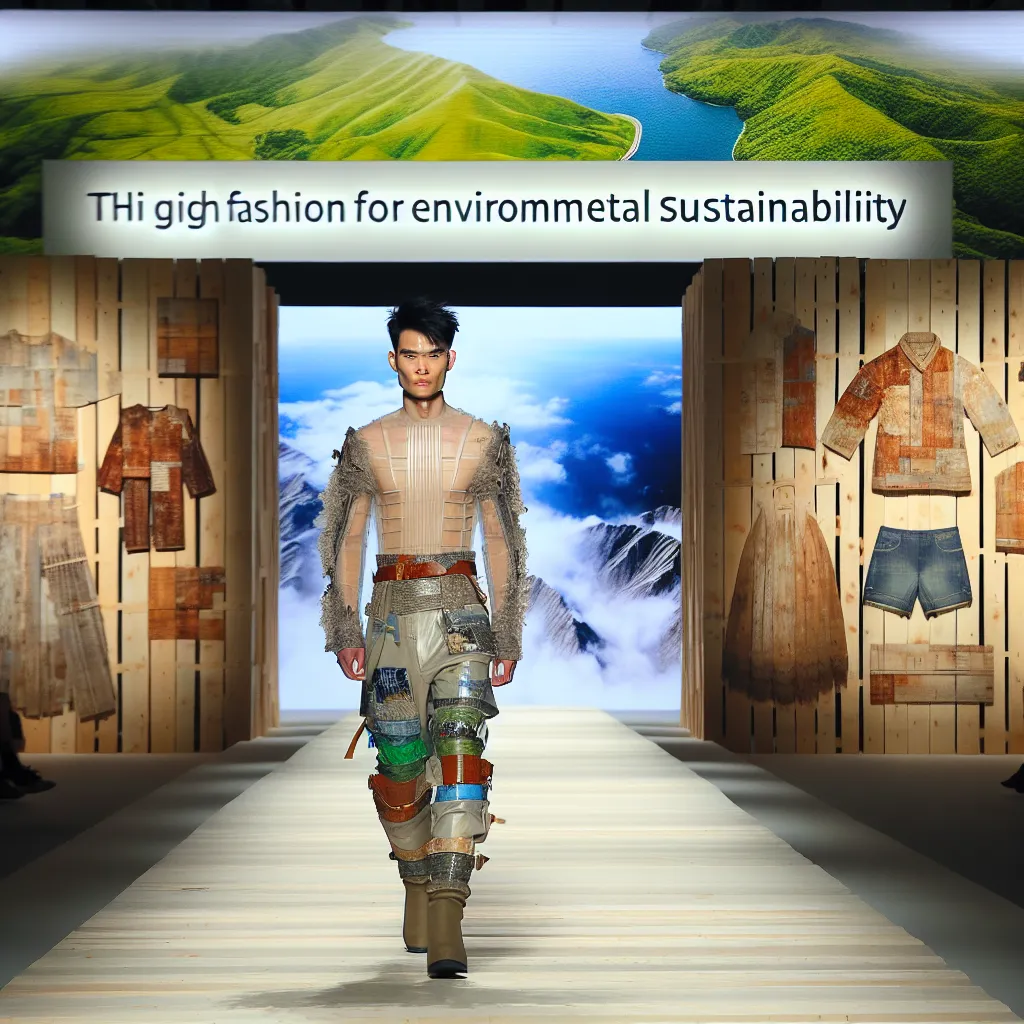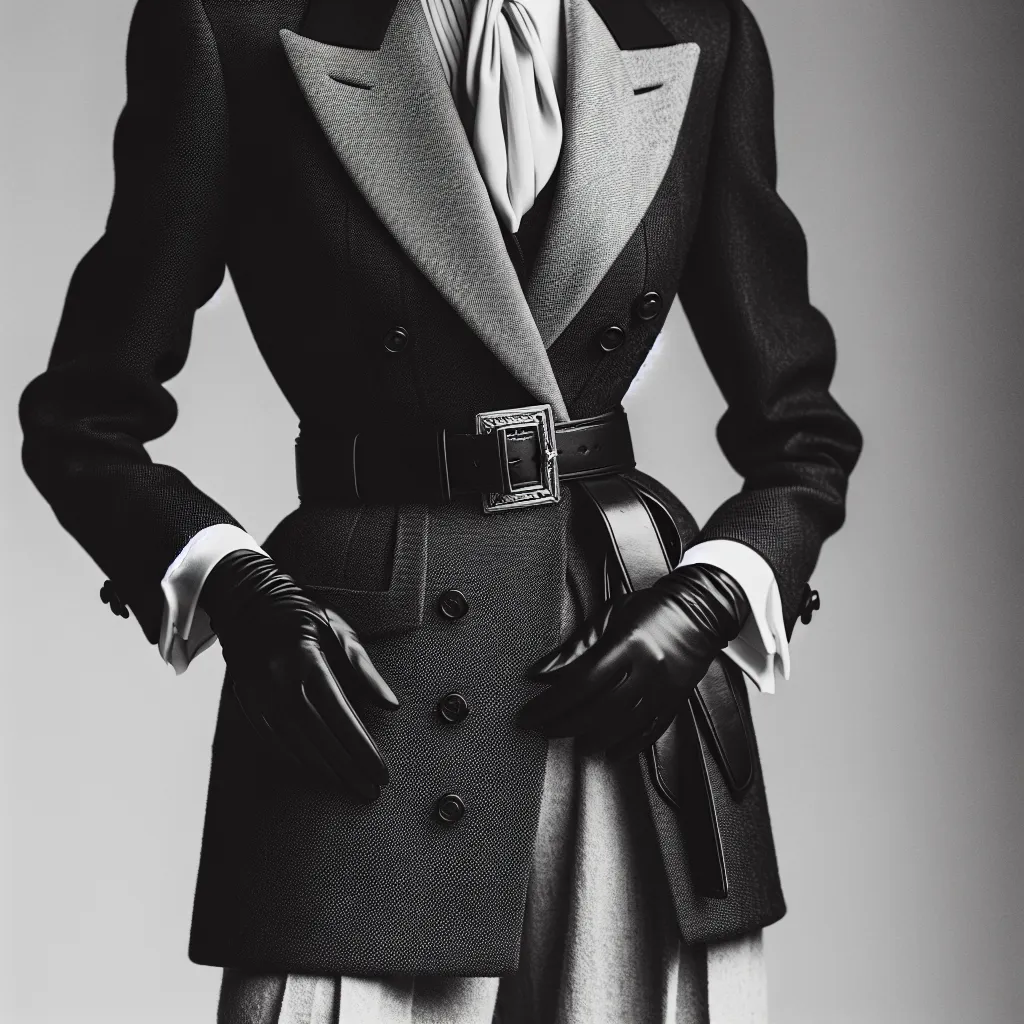Eco-Friendly Materials: The Future of Fashion
In recent years, the fashion industry has witnessed a significant shift towards sustainability, with more and more brands embracing eco-friendly materials in their collections. This shift is driven by an increasing awareness of the environmental impact of the fashion industry and a growing demand for ethically produced clothing. As a result, eco-friendly materials are shaping the future of fashion, offering innovative and sustainable alternatives to traditional fabrics.
One of the most notable trends in sustainable fashion is the use of organic and natural materials such as organic cotton, hemp, and linen. These materials are grown without the use of harmful pesticides and chemicals, making them a more sustainable and eco-friendly choice. Additionally, advancements in textile technology have led to the development of innovative materials such as Piñatex, a natural leather alternative made from pineapple leaves, and Tencel, a fiber derived from sustainably sourced wood pulp.
Furthermore, the upcycling and repurposing of materials is gaining traction in the fashion industry, with designers and brands finding creative ways to reuse and transform existing materials into new garments. This approach not only reduces waste but also adds a unique and sustainable aspect to fashion collections.
As consumers become more conscious of the environmental impact of their purchasing decisions, the demand for clothing made from eco-friendly materials is expected to continue rising. This shift towards sustainable fashion not only benefits the environment but also encourages innovation and creativity within the industry, paving the way for a more ethical and eco-conscious future of fashion.
Ethical Production: A Game Changer in the Fashion Industry
One of the most significant trends in the fashion industry is the increasing focus on ethical production. As consumers become more conscious of the environmental and social impact of their purchasing decisions, the demand for ethically produced clothing is on the rise. This shift towards ethical production practices is proving to be a game changer in the fashion industry.
Ethical production involves ensuring that the entire supply chain, from sourcing raw materials to manufacturing the final product, takes into account the well-being of workers, the environment, and local communities. This includes fair wages, safe working conditions, and sustainable production processes. Brands are now under pressure to be transparent about their sourcing and production methods, and consumers are actively seeking out information about the ethical practices of their favorite fashion labels.
As a result, many fashion companies are implementing sustainable and ethical practices as a core part of their business models. This includes using eco-friendly materials, embracing fair trade principles, and reducing the carbon footprint of their operations. Additionally, there is a growing emphasis on empowering local artisans and traditional craftsmanship, supporting indigenous communities, and preserving cultural heritage through fashion.
In conclusion, ethical production is reshaping the fashion industry by driving positive change towards more sustainable and socially responsible practices. As consumers continue to prioritize ethical considerations in their purchasing decisions, fashion brands are compelled to adapt and innovate to meet these evolving expectations.
Consumer Behavior Shift: Embracing Sustainable Fashion
Consumer behavior in the fashion industry is undergoing a significant shift as more and more individuals embrace sustainable fashion. This shift is driven by a growing awareness of the environmental and social impact of the fashion industry. Consumers are increasingly looking for ethically produced, eco-friendly and long-lasting clothing options, as opposed to fast fashion items that contribute to environmental degradation and poor working conditions in the supply chain.
A key trend in this consumer behavior shift is the demand for transparency and accountability from fashion brands. Consumers are seeking information about the sourcing of materials, production processes, and the overall impact of the products they purchase. Brands that prioritize sustainability and ethical practices are gaining favor with consumers who actively seek out information on a brand’s commitment to environmental and social responsibility.
Another aspect of this shift is the rise of the circular fashion economy, where consumers are actively participating in clothing rental, swapping, and thrifting. This approach extends the lifespan of clothing and reduces the overall demand for new production, contributing to a more sustainable fashion ecosystem.
Furthermore, technological advancements have enabled greater transparency in supply chains, allowing consumers to trace the journey of their clothing from raw material to finished product. This increased visibility empowers consumers to make informed decisions and support brands that align with their values.
In essence, the shift in consumer behavior towards embracing sustainable fashion reflects a growing consciousness about the environmental and social impact of fashion choices. This trend is poised to drive lasting changes in the fashion industry, encouraging brands to adopt more sustainable practices and offering consumers the opportunity to align their fashion choices with their values.
From Runway to Street: The Influence of Sustainable Fashion Trends
In recent years, the fashion industry has witnessed a significant shift towards sustainability, with designers and brands incorporating eco-friendly practices into their collections. This surge has not only been confined to the runways of high-profile fashion shows but has also trickled down to influence street style and everyday wear. The influence of sustainable fashion trends from the runway to the street is unmistakable, as consumers seek out clothing that not only makes a style statement but also aligns with their values of environmental responsibility and ethical production.
One prominent trend that has made its way from the runways to the streets is the emphasis on quality over quantity. Sustainable fashion encourages individuals to invest in timeless, well-crafted pieces that are made to last, in contrast to the fast-fashion culture that promotes disposable clothing. This shift has given rise to the popularity of capsule wardrobes, where individuals curate a collection of versatile, durable garments that can be mixed and matched for different looks, thus reducing the reliance on constantly buying new items.
Additionally, the use of organic and recycled materials has become increasingly prevalent in both high fashion and everyday attire. From organic cotton to innovative fabrics derived from recycled plastic bottles, sustainable materials are reshaping the fashion landscape. This shift highlights the industry’s commitment to reducing its environmental impact and addressing the pressing concern of textile waste.
Furthermore, the influence of sustainable fashion on street style can be seen in the rising popularity of thrift shopping, upcycling, and clothing rental services. These practices not only promote the reuse of garments but also add a unique, vintage flair to personal style. As consumers become more conscious of the environmental and social implications of their fashion choices, the demand for pre-owned and repurposed clothing continues to soar.
In conclusion, the influence of sustainable fashion trends from the runway to the street underscores a fundamental change in the way people perceive and consume fashion. As the industry embraces eco-conscious practices and consumers champion a more mindful approach to their style choices, the future of fashion is undoubtedly veering towards a more sustainable and ethical path.




